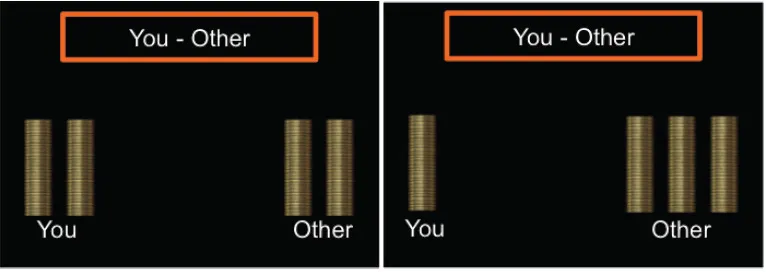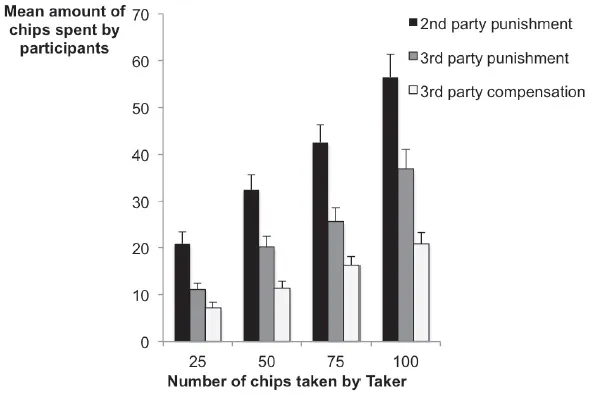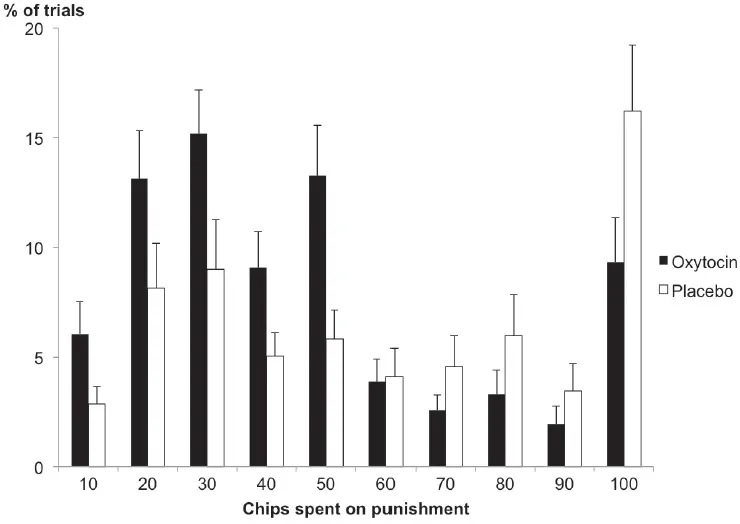Whether something is an injustice or not, a perception of injustice will often lead to disagreements and conflicts. Our sensitivity to injustice takes shape as minor conflicts between friends or family members, to large-scale wasteful conflicts at the level of nations and cultures.

Source
Injustice is an important aspect of our society, where we make decisions as individuals or as groups to punish transgressors of social norms and compensate victims. But the science with respect to injustice has little to say on how the brain processes these real or perceived violations.
A study was conducted to provide neurobiological insights about social injustice by combining psychology, neuroscience and economics to explore perceptions of injustice related to punishment and compensation decisions. The results published in JNeurosci suggest that punishing a wrongdoer is more rewarding to the brain than supporting a victim.

Source
Participants in the study were young men who played a "justice game" and had their brain activity measured. The game involved a "Taker" and a "Partner" each start out with 200 chips. Takers can steal up to 100 chips from the Partner, and the Partner can spend 100 chips to retaliate and take up to 300 chips from the Taker. Participants played as either a Partner or an "Observer" who could punish the Taker or help the Partner by spending chips to increase the chips the Partner's had.

Source
As you might expect, those who played as a Partner and experienced injustice directly, were more willing to punish the Taker that personally did the injustice to them. Those who played as a third-party Observer were less personally affected to feel an injustice and less willing to punish the Taker compared to the Partner.

Source
The brain region associated with reward processing had activity when decisions to punish were made, and different levels of activity was seen in the severity of punishment dished out.
Participants were also randomly given a placebo or oxytocin nasal spray before beginning the experiment. Those who received oxytocin were affected by giving less severe punishments, but they also gave more punishments. Oxytocin appears to increase corrective punishments but make them more fair, and the difference is measurable in the brain. However, decisions to compensate victims were unaffected. Oxytocin doesn't appear to act as an enhancer of empathy, altruism or pro-social behavior.
When faced with an injustice, we have a strong desire to deal with wrongs committed. We prefer to punish a wrongdoer, than support a victim. I see this as relating a need to have consequences for wrong actions. If anyone who treats others improperly isn't faced with consequences, then they are free to continue to create wrongs and injustice as much as they want. With consequences, we an learn from our mistakes.
I had recently posted about a study that dealt with punishment in a prisoner's dilemma scenario related to cooperation. It was found that punishment didn't produce more cooperation in that game theory model. I still view applying consequences to actions as a valid punishment that corrects and realigns people with the reality of their wrongfulness. Otherwise, if they don't listen to reason, they have no reason to change their motivation for the wrong actions they engage in, and more victims will be created by them continuing their behavior.
What do you think? Have your say.
- Is punishing a wrongdoer more rewarding than helping a victim?
- Is one more important than the other, or both equal?
Thank you for your time and attention. Peace.
Recent posts:
- Chaos Teaches
- Sexually Objectified Women Get Less Empathy
- The Power to Create Good and Evil
- Social Media, Downvotes, and Pure Direct Democracy Majority Rule
Are Violent Video Games Linked to Violent Behavior?- Non-Aggression and Justice
If you appreciate and value the content, please consider: Upvoting, Sharing or Reblogging below.
 me for more content to come!
me for more content to come!
My goal is to share knowledge, truth and moral understanding in order to help change the world for the better. If you appreciate and value what I do, please consider supporting me as a Steem Witness by voting for me at the bottom of the Witness page; or just click on the upvote button if I am in the top 50.
